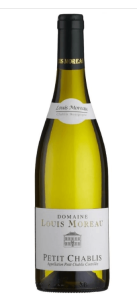
Can Diabetics Drink Wine?
Living with diabetes can be a difficult chronic condition, especially when considering the dietary restrictions necessary to maintain optimal blood glucose levels. However, one overriding question many people with diabetes have is whether it’s safe to consume alcohol like wine.
We’re here to set the record straight and help you understand if people with diabetes can drink wine. We discuss the safety and relationship between alcohol and wine, wines to avoid, the risks associated with drinking wine with diabetes, and the best tips for enjoying a delicious glass of wine with diabetes.
Diabetes and Wine: Is It Safe?
Before we get started on what drinks are safe for people with diabetes, let’s discuss the relationship between diabetes and wine or alcohol in general. All alcohol threatens blood glucose levels, which in patients with diabetes, can be concerning. This is because alcohol is metabolized in the liver, impairing it from proficiently releasing glucose into the bloodstream.
In people without diabetes, this poses little harm unless they have overindulged on their acholic beverage, but in patients with diabetes, this can result in a very low blood sugar level and, in extreme cases, hypoglycemia. In excess, patients with diabetes might experience classic hypoglycemia symptoms, including:
- confusion
- dizziness
- tremours
- extreme fatigue
- seizures (in extreme cases)
However, in moderation, drinking wine doesn’t pose significant threats to those with diabetes. Wine and diabetes don’t have to be a dangerous pairing as long as patients don’t drink excess amounts of alcohol in a very short space of time.
This gives the body a better chance at proficiently metabolizing the units of alcohol, reducing the chances of experiencing a hypoglycemic episode.
What Are The Best Wines to Enjoy with Diabetes
The wine’s dryness level typically determines whether your beverage is the best for type 1 and type 2 diabetes.
The wine dryness scale ranges from very dry to very sweet and refers to the amount of sugar left over after fermentation. Dryer wines typically have the least leftover sugar after fermentation, with the dryest wines like chablis, chardonnay, and sauvignon blanc being prime examples of excellent dry wines to enjoy.
Sweeter wines like dessert wines, ice wines, port, and shiraz will typically have the most leftover sugar and, therefore, the sweetest taste. It’s vitally important for a person with diabetes to make this differentiation, as the amount of sugar (carbohydrates) in wine will significantly impact your glucose levels.
As a person with diabetes, you may wish to stay on the dryer end of the scale, resorting to dry delights like a bottle of merlot, cabernet sauvignon, or pinot noir. Sparkling wines may be a good option for people with diabetes looking for a delicious beverage to enjoy during a celebration.
If you do decide to drink sweet wines or liqueurs, consider having sugar-free mixers to hand and pace yourself. While no one should overindulge when it comes to drinking alcohol, drinking in moderation for diabetics could be the difference between level blood sugars or a hypoglycemic episode.

Can Drinking Sweet Wine Cause Blood Sugar Levels to Rise? Wines to Avoid
While the most common effect of alcohol consumption in people with diabetes is low blood sugar, there are also some risks around rising glucose levels. Sweeter wines contain carbohydrates, which will cause blood sugar levels to rise when broken down.
While this typically isn’t concerning along as you drink in moderation and not too fast, a rapid rise in blood sugar can have worrying side effects, such as hyperglycemia.
While everything in moderate amounts is generally safe, you should consider omitting the following wines from your list to ensure you maintain good blood glucose levels:
- Low-alcohol wines: Although you may think alcohol-free reduces the risk of a significant blood sugar crash, you’ll typically find that low and no-alcohol wines have a significant amount of sugar.
- Ice wine: Ice wines have an extremely high sugar content due to the freezing of the grapes on the vine, which allows them to maintain their sugar concentration. To avoid hyperglycemia, consider opting for a dry wine over an iced wine.
- Dessert wine: Dessert wines come from grapes with very high sugar content and use a fermentation process that is stopped before all sugar is converted into alcohol. These wines are typically very sweet and should typically be avoided. Examples of dessert wine include sherry, port, or reisling.
Thankfully, with Wine Online, you can easily find a wine suitable for diabetes patients. Alongside the wine’s specifications, you’ll find its sweetness level, helping you avoid rapid rises in your blood sugar!
Drinking Wine with Diabetes: 6 Tips
Here are some of the best tips if you’re living with diabetes and would like an alcoholic beverage like wine:
- Continually monitor your glucose levels: To avoid the impact of either a significant crash or sugar high, you should regularly read your blood sugar levels. This ensures you can respond quickly to significant insulin rises or have something sugary if your blood sugar levels fall too low.
- Drink water: You should always keep hydrated when you drink, but drinking water will help your kidneys dispose of extra sugar, maintaining normal glucose levels.
- Don’t drink on an empty stomach: If you drink on an empty stomach, your blood sugars may be more prone to significant spikes or falls. Always eat a balanced meal before drinking to ensure good blood sugar levels.
- Stick to a clear limit: It’s recommended that people with diabetes shouldn’t exceed more than two drinks a day or 14 per week. Try to keep this in mind when enjoying a glass of wine with friends.
- Monitor your levels in the morning: In people with type 1 diabetes, the morning after a drinking session is as important as the night before. You may be more prone to morning blood sugar crashes, so immediately check your blood sugar when you wake up to avoid hypoglycemic episodes.
- Consult with healthcare professional: It’s always a good idea to consult with a healthcare professional or a registered dietitian for personalized advice regarding alcohol consumption and its effects on blood sugar levels for individuals with diabetes.
Find A Wine That Suits You at Wine Online
At Wine Online, we believe in helping everyone find a wine that suits them. That’s why we’re proud to provide a comprehensive selection of dry wines perfect for people with diabetes who still want to enjoy a delicious and refreshing glass of wine at the end of the day.
Whether you want to enjoy a glass of sauvignon blanc alongside a healthy fish or salad dish, or you’re looking for something more indulgent like a bottle of Malbec,
WineOnline.ca has something for you – order online today!





